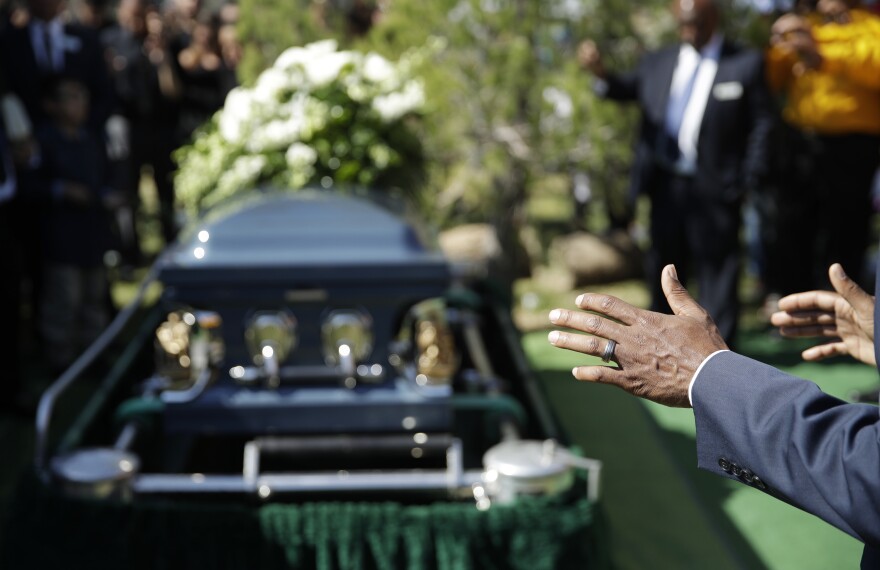Gun violence kills thousands of Americans every year. It carries massive consequences in lives lost, injuries and medical treatment, but what about the economic cost – in jobs, businesses and community development? How can we measure the opportunity cost of gun violence?
On this week’s episode of 90.5 WESA’s Criminal Injustice podcast, University of Pittsburgh law professor and host David Harris talks to the Urban Institute senior researcher Yasemin Irvin-Erickson, who's trying to put a figure on the high cost of shootings.
Their conversation has been edited for length and clarity.
DAVID HARRIS: We know that there are enormous costs to gun violence for the people who end up as victims. What are the best estimates of the costs for deaths, injuries and medical treatment for those who survive?
YASEMIN IRVIN-ERICKSON: The annual cost of gun violence to the United States is at least $229 billion.The cost to victims’ quality of life and lost wages account for almost 97 percent of these costs. And in 2010 alone, the total nationwide cost of medical care for gunshot injuries was just under $630 million.
HARRIS: You wanted to go beyond these direct, very important human costs to economic costs. Your research targets how local economies respond to gun violence, especially spikes in gun violence. Why did you want to do that, and what did you want to measure?
ERICKSON: Despite this general interest in estimating the cost of victimization at the victim, state and the national levels, we still know very little about how violent crime affects local-level economic health. With our study, we wanted to explore how increases and especially sudden surges in gun violence from existing levels of gun violence impact local businesses and the housing market.
HARRIS: You've got results from three cities: Minneapolis, Oakland, Calif., and Washington, D.C. So what's the takeaway from your research? What could policymakers be doing better, and what can we do in our own communities?
ERICKSON: The local economic impact of gun violence can create this vicious cycle. Gun violence can cause people to lose the economic opportunities, and in return, foster conditions that bring about increases in gun violence in the first place. To escape this cycle, public policy efforts should promote business development, track economic resilience of communities and reduce gun violence simultaneously. Such an effort requires not only residents, but also business owners, to recognize the very strong incentive to collaborate with local governments in violence prevention efforts and connect that to the needs of local communities.
You can hear David Harris’ full conversation with researcher Yasemin Irvin-Erickson on this week’s episode of WESA’s Criminal Injustice podcast. Subscribe on iTunes or through your favorite podcast app.




